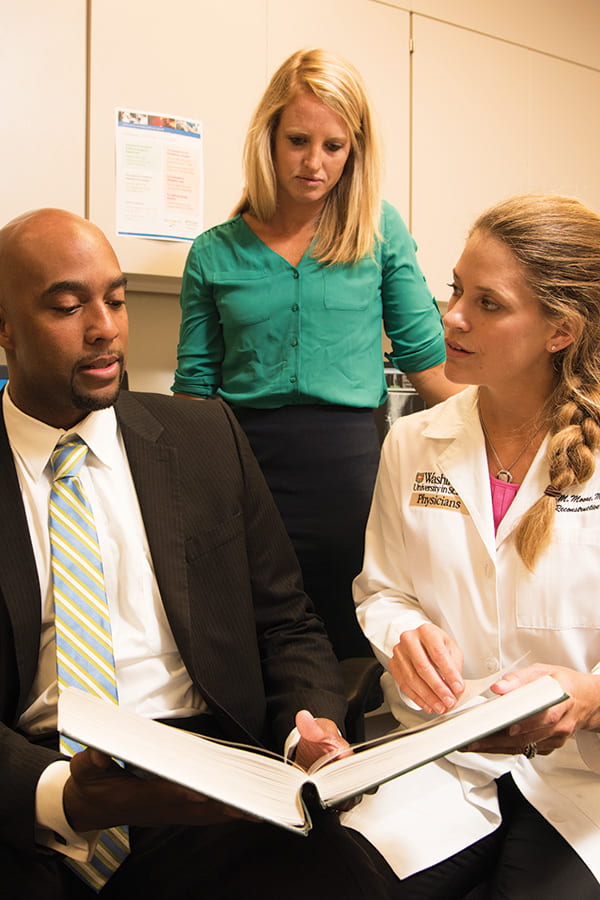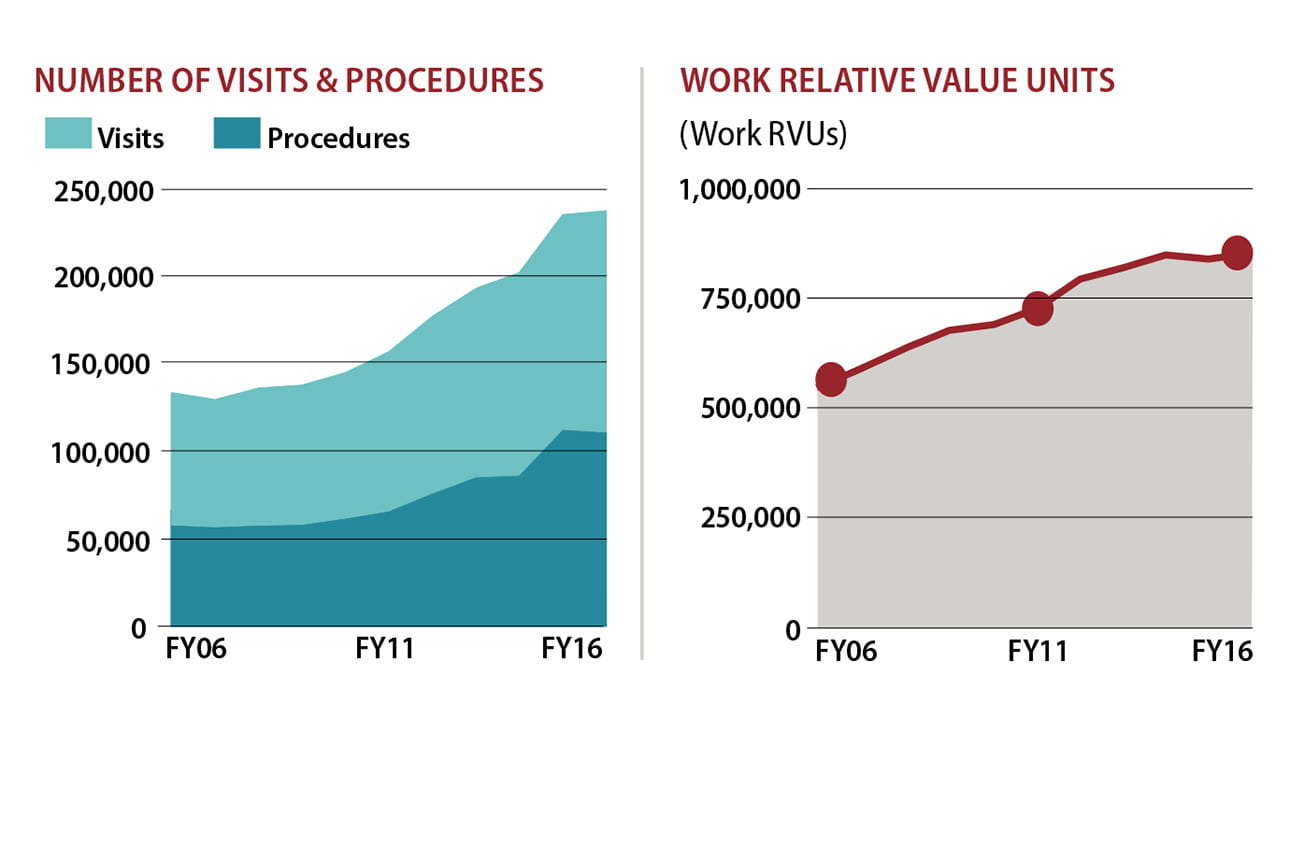Growth Continues Despite Challenges

The Department of Surgery’s clinical activity continues to grow steadily, as it has for the last 13 years, despite a challenging economic environment. Contributing to the growth, the department appointed Clinton Fields as director of clinical operations, a new position. Fields joined the department after serving as associate administrator for Truman Medical Centers in Kansas City and has overseen new and expanded services in his first year.
The department has expanded to many other facilities within the non-profit BJC HealthCare organization in the St. Louis area and beyond over the past 10 years; four surgical subspecialties — colorectal, urologic, vascular and plastic surgery — now provide care at a new outpatient facility 18 miles south of the department’s main location at Washington University Medical Center.
School of Medicine clinical departments and BJC hospitals also have begun implementing EPIC as an electronic medical record system for both inpatients and outpatients. The system will allow BJC hospitals and the medical school to share records with each other and with other medical providers throughout the country and world.
Quality Improvement/Patient Safety
To support faculty development, the department brought in nationally recognized speakers on quality improvement and patient safety, including former United States Assistant Secretary for Health and Human Services Howard Koh, MD, and leading health-care safety consultant Michael Leonard, MD.
Health-Care Challenges
Payment issues continue to be a challenge for regional health-care providers. Although more people have health insurance as a result of the Affordable Care Act (ACA), patients are bearing more responsibility for costs. The state of Missouri has declined to expand Medicaid under the ACA, and patients with high-deductible health-care plans often are unable to afford their deductibles.
The department also is preparing for changes in Medicare, including the Bundled Payments for Care Improvement (BPCI) Initiative. This system — representing a trend in health-care payments — bundles payments for multiple services provided during an episode of care rather than having Medicare or other payers billed separately for each service.
“Linking payments for an episode of care keeps all health-care providers in the loop to provide better care for the patient,” says Fields.
Highlights

Clinical activity in the department rose again in fiscal year 2016, in part because of clinical expansion into the St. Louis metropolitan region and beyond.
A vision for 2020 plan will set the course for the department over the next four years. The plan reaffirms the department’s tripartite mission (research, patient care and education) and its commitment to activities that support it:
- transitioning to value-based care, which emphasizes providing care in an evidence-based and cost-effective manner
- financial viability to support research and education
- teamwork and a commitment to a diverse, inclusive, psychologically safe culture
- engagement of faculty, staff and trainees
The department has already put in place a quality improvement resource team, leadership learning, and steps to increase fairness, competitiveness and transparency of faculty compensation. Works in progress include adoption and completion of a surgical plan by all surgeons, to be used by all who plan and participate in surgery.